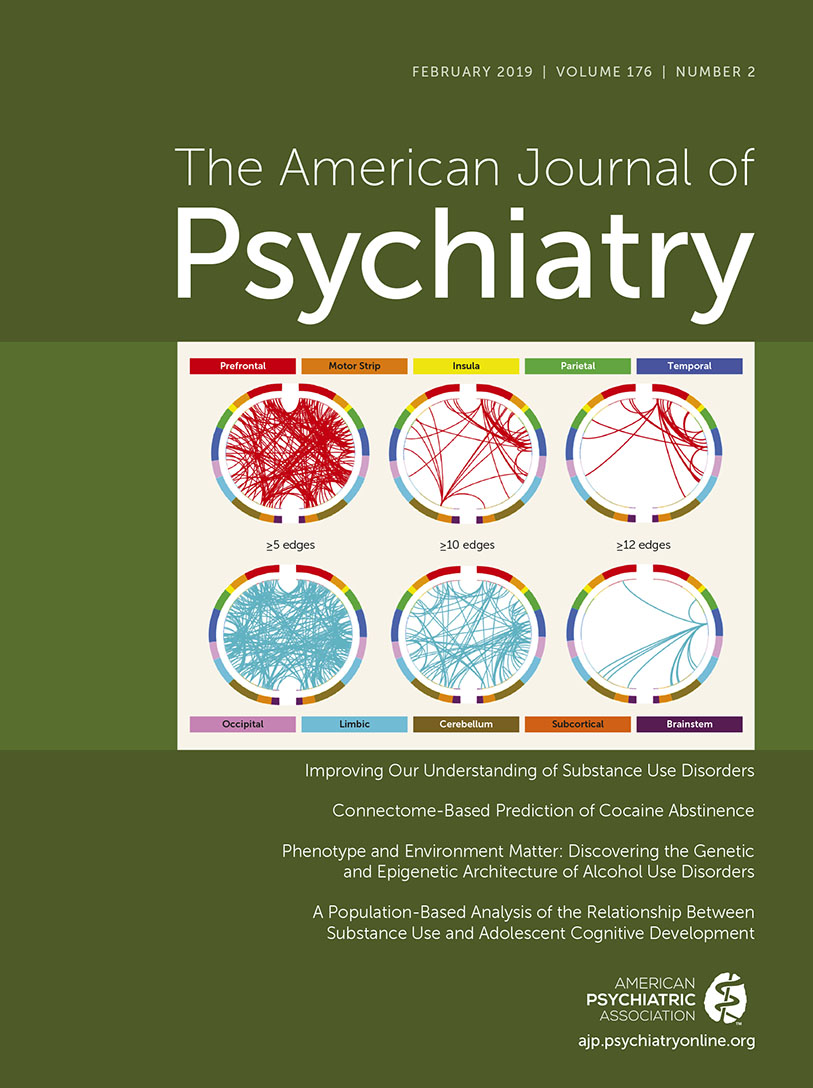Genome-Wide Association Study Meta-Analysis of the Alcohol Use Disorders Identification Test (AUDIT) in Two Population-Based Cohorts
Abstract
Objective:
Alcohol use disorders are common conditions that have enormous social and economic consequences. Genome-wide association analyses were performed to identify genetic variants associated with a proxy measure of alcohol consumption and alcohol misuse and to explore the shared genetic basis between these measures and other substance use, psychiatric, and behavioral traits.
Method:
This study used quantitative measures from the Alcohol Use Disorders Identification Test (AUDIT) from two population-based cohorts of European ancestry (UK Biobank [N=121,604] and 23andMe [N=20,328]) and performed a genome-wide association study (GWAS) meta-analysis. Two additional GWAS analyses were performed, a GWAS for AUDIT scores on items 1–3, which focus on consumption (AUDIT-C), and for scores on items 4–10, which focus on the problematic consequences of drinking (AUDIT-P).
Results:
The GWAS meta-analysis of AUDIT total score identified 10 associated risk loci. Novel associations localized to genes including JCAD and SLC39A13; this study also replicated previously identified signals in the genes ADH1B, ADH1C, KLB, and GCKR. The dimensions of AUDIT showed positive genetic correlations with alcohol consumption (rg=0.76–0.92) and DSM-IV alcohol dependence (rg=0.33–0.63). AUDIT-P and AUDIT-C scores showed significantly different patterns of association across a number of traits, including psychiatric disorders. AUDIT-P score was significantly positively genetically correlated with schizophrenia (rg=0.22), major depressive disorder (rg=0.26), and attention deficit hyperactivity disorder (rg=0.23), whereas AUDIT-C score was significantly negatively genetically correlated with major depressive disorder (rg=−0.24) and ADHD (rg=−0.10). This study also used the AUDIT data in the UK Biobank to identify thresholds for dichotomizing AUDIT total score that optimize genetic correlations with DSM-IV alcohol dependence. Coding individuals with AUDIT total scores ≤4 as control subjects and those with scores ≥12 as case subjects produced a significant high genetic correlation with DSM-IV alcohol dependence (rg=0.82) while retaining most subjects.
Conclusions:
AUDIT scores ascertained in population-based cohorts can be used to explore the genetic basis of both alcohol consumption and alcohol use disorders.



